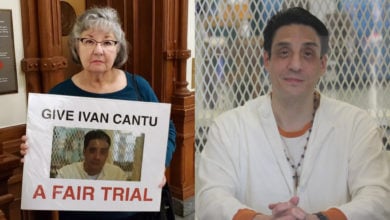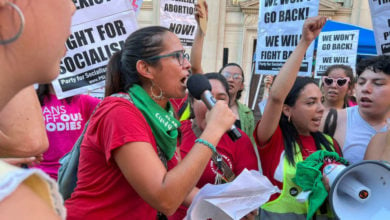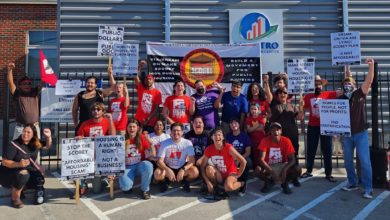The state of Texas is now facing record heat waves just months after a record winter storm left most of the state in sub-Arctic temperatures, without access to water, electricity, or heat. The Electric Reliability Council of Texas is asking consumers to reduce electricity use during the heatwave, the third time since the February winter storm that they have made this request. With severe weather constantly straining the state’s energy grid, and with new reports indicating that as many as 700 people may have died in the storm, many Texans are questioning whether anything has fundamentally changed.
The February storm was far worse than the state reported
On May 26, BuzzFeed News published a study using “excess death” statistical analysis. This is the same used by public health officials in estimating global deaths from COVID-19. Their results, reviewed by three independent experts, found that between 426 and 978 more people died in Texas during February than expected. The best estimate using this model is 702. This discovery stands in stark contrast to the official Texas state report of 151 deaths.
Working-class communities, especially Black, Brown, and other oppressed communities, were the first to lose power during the so-called “rolling blackouts” that lasted days. Almost half of the 1,200 nursing homes in Texas reported a weather-related emergency. Many cities left their entire homeless populations to die, and people with health conditions such as diabetes, cardiovascular disease, or kidney problems were left with no sources of treatment or medical supplies. Liberation News reported the statewide discrepancy between official statements and on-the-ground realities during the storm. Now, it seems, there is a huge discrepancy between the number of officially reported dead and the real number.
ERCOT also seems to be in far more dire straits than official reports suggest. The corporation has issued two warnings about summer heat waves since the storm. They are currently predicting a shortage of 11,000 megawatts, enough to power 2.2 million homes on a summer day. About 73% of the shortage is due to thermal generators, typically gas and coal plants, being offline.
During the February storm, ERCOT claimed that no one could have foreseen the record cold temperatures in a state known for hot weather such as Texas. (This is despite a similar winter storm causing major outages 10 years earlier.) Now, ERCOT is blaming unforeseen hot temperatures for power shortages. Even in “normal” Texas weather, the state’s deregulated power grid is notorious for rolling blackouts. Severe heat and cold will both become more common due to climate change, caused by the very same fossil fuel plants that Texas is protecting from regulation. Free-market deregulation, not “unforeseeable” weather events, is ultimately causing these continued outages and shortages.
Is Texas on the right path to fixing the grid?
Texas took some steps in the last legislative session to address the disastrous, deadly failure of the grid, even if the state does not admit the full extent of the damage. Most prominently, the legislature passed two bills into law regarding ERCOT and the grid.
Senate Bill 2 shrinks the number of seats on ERCOT’s board, which oversees it, from 16 to 11. Now, “selection committee,” appointed by the governor and other officials, will select eight of the board members. Currently, the governor just appoints the board members. This is essentially a minor structural adjustment.
Senate Bill 3 is more expansive, but more of a mixed bag. On one hand, it provides relief for customers who were exploited during the winter storm, establishes stricter rules for insulating power plants from severe weather, and sets fines for companies that violate these rules.
But there are portions of the bill that fall short, and other portions that are actively harmful. The fines for non-compliance are between $10,000 and $1 million, not nearly enough to be a deterrent to a multi-billion dollar industry like Texas oil and gas. It is more profitable for companies to keep cutting corners and paying the fines than it is for them to change their behavior.
Even worse, the new council that decides the fines — the Texas Energy Reliability Council — will be staffed by fossil fuel representatives and industry insiders hand-picked by the governor. Oil and gas companies will be allowed to regulate and decide fines for themselves, a common theme in Texas politics.
The people demand a better system
Texas may have reined in some of the most visible signs of the free market’s spectacular failure, but they are setting the grid up for another disaster. At absolute best, the reforms are tinkering around the edges of privatized excess. At worst, they put oil and gas executives in direct control of new regulatory agencies.
Organizers across the state are forming coalitions to make larger demands of the state. Texas needs a publicly owned power grid, an immediate conversion to green energy, reparations for families who have lost loved ones, far more shelters across the city during severe weather, and a cancellation of rents to prevent a snowballing wave of evictions. Capitalist media often considers such demands “unreasonable pipe dreams” in order to lower our expectations. In fact, Texas legislators are terrified of the potential power of social movements to bring about exactly these changes. The growing fight for a new system isn’t just rational and obtainable; it is absolutely necessary for our survival.






